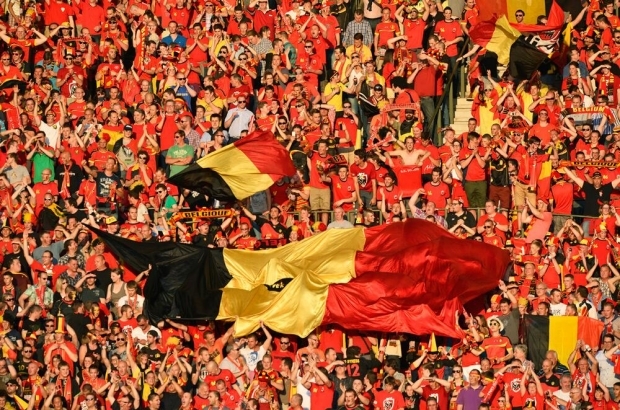- Daily & Weekly newsletters
- Buy & download The Bulletin
- Comment on our articles
Several Belgian towns cancel big-screen plans for Qatar World Cup
An increasing number of Belgian municipalities have cancelled plans to show this winter's football World Cup matches on big screens - citing both ethical concerns and the soaring cost of energy.
In Wallonia alone, several town councils have recently announced that their initial plan to show the matches on giant screens had been scrapped. They include Braine-le-Comte, Soignies, La Louvière, Ottignies-Louvain-la-Neuve, Namur, Wavre and Tubize.
Some town councils have made the decision on ethical grounds, pointing to reports of human rights abuses in Qatar among migrant workers preparing for the tournament.
"Organising the World Cup in Qatar very clearly goes against our values," said La Louvière mayor Jacques Gobert. "It would be wrong for us to be associated with such an organisation."
The mayor of Soignies, Fabienne Winckel, added: "We wanted to show our disapproval of this event."
She also pointed to ecological concerns and the rising cost of energy, with the tournament taking place during colder months - from 20 November to 18 December.
"The season is not ideal, it would have meant additional costs: tents, heating," said Winckel. "That's why we made this decision. It would have been complicated from an energy point of view.
"But this does not mean that we are stopping other people from organising something privately: sports clubs who wish to put up a giant screen are free to do so."
From an economic point of view, several town councils found it difficult to justify spending up to €50,000 on building the necessary equipment to show the matches in public.
Maxime Daye, president of the Walloon Union of Cities and Municipalities, said each municipality was free to make its own decisions. "We are very attached to the concept of municipal autonomy," he said.
"Each mayor does what they please. For ethical matters such as this, it is really everyone's responsibility to make decisions according to their values."
Xavier Renaud, chief executive of big screen hire supplier XC-Com, said he was worried about a possible domino effect, as other municipalities learn of the cancellations and decide to do the same.
"This is an additional blow for the events sector, which is struggling to recover from the health crisis," he told RTBF.
According to an Amnesty International poll, seven out of 10 people in Belgium want the Belgian Football Federation to speak out publicly about human rights issues.
The federation's human resources director, Sylvie Marissal, told Bel RTL that while the Red Devils would not be boycotting the tournament, the team will not turn a blind eye to the human rights situation in Qatar and will take part in "visible actions".
"We had discussions about a boycott and we reflected on it," she said. "The general consensus was that if there was to be a boycott, it should have been 12 years ago when the World Cup was awarded. That should not have happened.
"We had a meeting with the Red Devils in June to talk about Qatar and human rights, in partnership with Amnesty. This is an issue that they are completely engaged about."
On what form the action would take, Marissal said: "It's up to the players to decide. It's in progress and it will be decided next week."


















